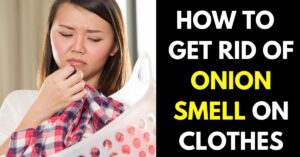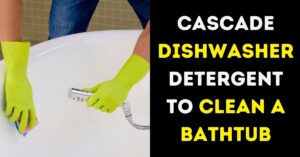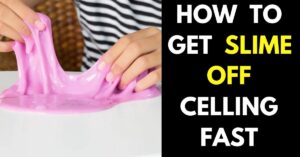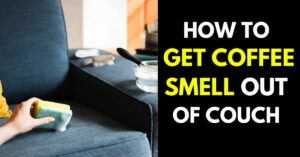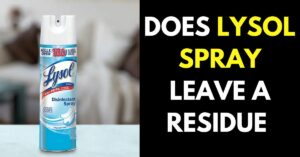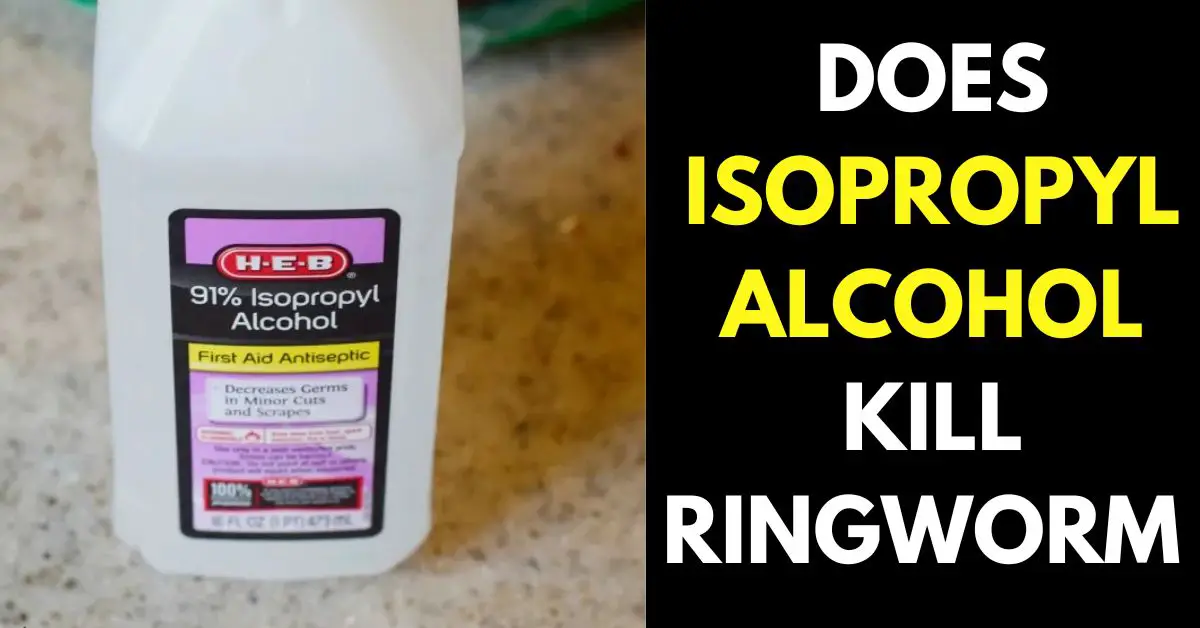
If you’ve ever had ringworm, you know how irritating and uncomfortable it can be. This fungal infection causes a circular, red, itchy rash that can spread quickly and be difficult to get rid of. But did you know that isopropyl alcohol could be a helpful tool in fighting off this pesky problem?
We’ll dive into the question of whether or not isopropyl alcohol can kill ringworm, and explore some tips for using this common household item to treat the infection. Let’s get started;
What is a Ringworm?

Ringworm is a common fungal infection of the skin, hair, and nails. Despite its name, ringworm is not caused by a worm, but rather by a group of fungi known as dermatophytes. These fungi thrive in warm, moist environments and can be transmitted through direct contact with an infected person or animal, or by sharing contaminated items like towels, clothing, or sports equipment.
Ringworm typically presents as a circular, red, scaly rash with a clear center that may itch or burn. The rash may appear anywhere on the body but is most commonly found on the scalp, feet (athlete’s foot), groin (jock itch), or nails (onychomycosis).
While ringworm is not usually a serious condition, it can be persistent and contagious, so it’s important to seek treatment if you suspect you may have it.
How Long Does Ringworm Last on Surfaces?
Ringworm spores can survive on surfaces, clothing, and bedding for extended periods of time, up to 12 to 20 months, as long as they have access to a warm, moist environment and a source of dead skin cells to feed on.
This means that it’s important to thoroughly clean and disinfect any items that may be contaminated with ringworm spores to prevent the spread of infection.
This includes washing clothing and bedding in hot water, using a disinfectant spray or solution on hard surfaces, and avoiding sharing personal items like towels or combs with others
Does Isopropyl Alcohol Kill Ringworm
That’s correct! While isopropyl alcohol (also known as rubbing alcohol) can be effective at disinfecting surfaces and objects to prevent the spread of ringworm, it is not usually effective at killing the fungus that causes ringworm when it is living beneath the surface of the skin.

This is because the fungus tends to reside in the deeper layers of the skin and requires stronger antifungal treatments, such as topical or oral medications, to be effectively eliminated.
However, it’s worth noting that using isopropyl alcohol to clean and disinfect surfaces and objects that may be contaminated with ringworm can be an important step in preventing the spread of infection.
This includes frequently washing bedding, clothing, towels, and sports equipment, as well as regularly disinfecting surfaces like bathroom floors and shower stalls.
Does Rubbing Alcohol Kill Ringworm on Surfaces
Yes, rubbing alcohol (isopropyl alcohol) can be effective at killing ringworm spores on surfaces. Rubbing alcohol can be used as a disinfectant to kill the fungus on these surfaces and prevent the spread of infection.
To use rubbing alcohol to kill ringworm on surfaces, you can apply it directly to the affected area and then wipe it clean with a cloth or paper towel. Alternatively, you can mix rubbing alcohol with water in a spray bottle and use it to disinfect surfaces that may be contaminated with ringworm spores.
Does Ringworm Live on Bed Sheets?
Yes, ringworm spores can live on bed sheets, as well as on other surfaces like clothing, towels, and sports equipment. These spores can survive on these surfaces for extended periods of time, as long as their food supply (dead skin cells) is present and they have a warm, moist environment to live in.
This means that if you have a ringworm infection, it’s important to regularly wash and disinfect any items that may have come into contact with the affected area, including bed sheets.
It’s also a good idea to avoid sharing bed sheets, towels, or other personal items with others if you have a ringworm infection, in order to prevent the spread of the fungus.
Do I Need to Wash Everything After Ringworm?
Clean and disinfect any items that may be contaminated with ringworm spores after a ringworm infection, in order to prevent the spread of the fungus and avoid reinfection. This includes clothing, towels, bedding, sports equipment, and any other items that may have come into contact with the affected area.
To effectively clean and disinfect these items, it’s recommended to wash them in hot water with a detergent that contains bleach, if possible. You can also add a cup of white vinegar to the wash cycle, which can help kill any remaining spores.
Items that cannot be washed, such as shoes or sports equipment, can be wiped down with a solution of 70% isopropyl alcohol to help disinfect them.
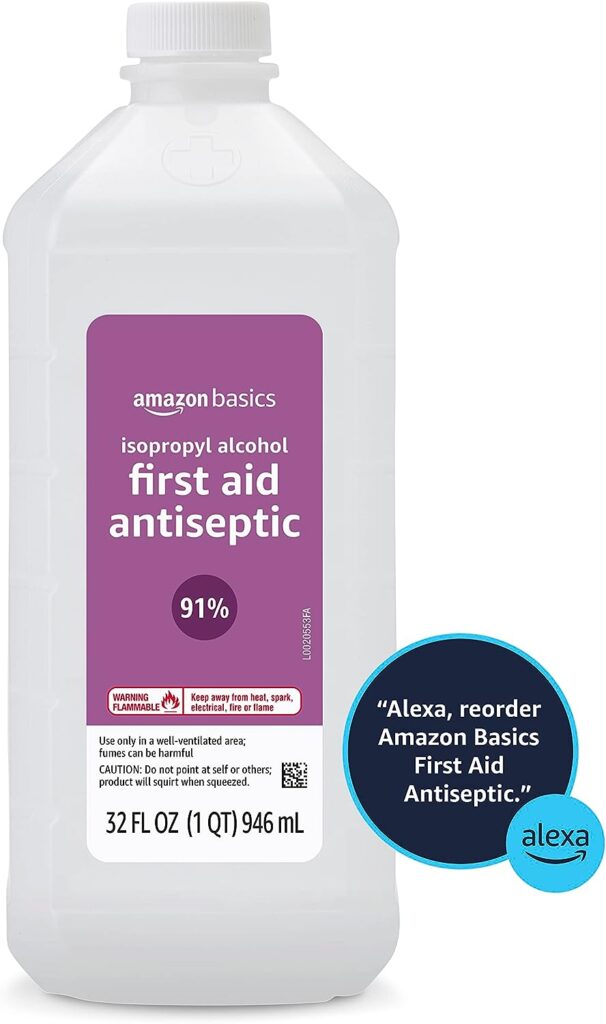
Takeaway
To prevent the spread of ringworm and protect yourself and those around you, it’s important to take quick action if you suspect an infection and follow good hygiene practices to prevent future infections.
Some key steps to take include avoiding sharing personal care items like towels and clothing, washing your hands regularly, and learning to recognize the signs and symptoms of ringworm in people and animals.

